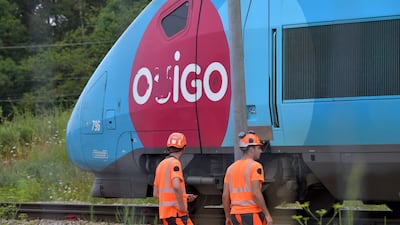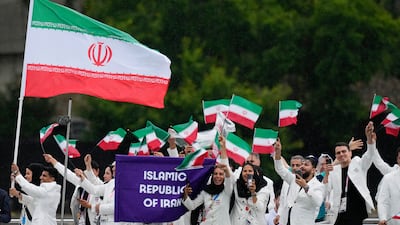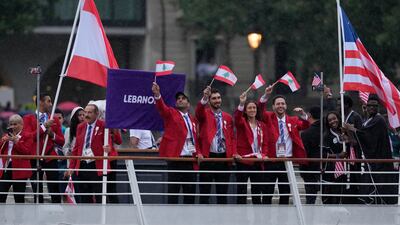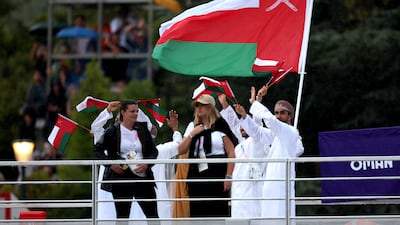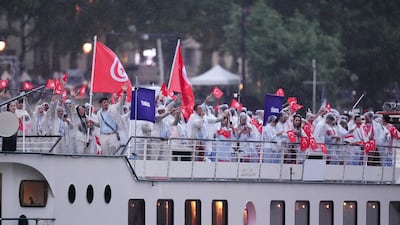France’s high-speed train network was gradually returning to normal on Saturday, a day after attacks by arsonists caused travel chaos on the opening day of the Olympic Games in Paris, but continued cancellations on the meant hundreds of thousands of passengers have been left stranded.
The head of the SNCF state-owned rail company said that trains would run normally from Monday after emergency repairs to sabotaged track.
Jean-Pierre Farandou told reporters that about 160,000 of the 800,000 people due to travel this weekend still faced cancellations or delays because of the three arson attacks on Friday.
The SNCF had said earlier on Saturday that while the high speed TGV trains will run on Saturday across four key routes, the disruption would persist until Sunday for northern high speed lines.
Engineers worked overnight to repair sabotaged signal stations and cables, restoring traffic on the eastern high-speed line, and leaving seven out of 10 trains running with delays on the north, north-west and south-west lines.
“On the eastern high-speed line, traffic resumed normally this morning at 6.30, while on the north, Brittany and south-west high-speed lines, seven out of 10 trains on average will run with delays of one to two hours,” the SNCF said in a statement on Saturday morning.
“At this stage, traffic will remain disrupted on Sunday on the north axis and should improve on the Atlantic axis for weekend returns,” it added.
The SNCF indicated it had increased its aerial and on-the-ground surveillance networks on Friday evening, with "thousands of maintenance staff" mobilised across the rail networks. Forty railway security teams and 50 drones have also been deployed.
In Friday's pre-dawn attacks on the high-speed rail network, vandals damaged infrastructure along the lines connecting Paris with cities such as Lille in the north, Bordeaux in the west and Strasbourg in the east.
Another attack on the Paris-Marseille line was foiled, SNCF said.
There has been no claim of responsibility for the sabotage, which SNCF estimated affected about 250,000 passengers on Friday. Junior transport minister Patrice Vergriete said 800,000 could face the fallout over the three days.
SNCF reiterated that transport plans for teams competing in the Olympics would be guaranteed.
Eurostar passengers from UK stranded
Eurostar passengers travelling from the UK to Paris faced continued disruption, as the rail operator said one in four trains would not run over the weekend.
Four trains from London to Paris were cancelled on Saturday, affecting thousands of passengers, with disruption expected to last until Monday.
Travellers were advised to postpone their journeys where possible.
Only a handful of seats were available to book on the remaining London to Paris Eurostar services on Saturday, according to PA, while tickets for overnight coaches arriving in the French capital on Sunday morning were selling for as much as £197 through Flixbus.
Among those affected on Friday was Prime Minister Sir Keir Starmer, who was to travel on the Eurostar for the Games' opening ceremony but flew to Paris instead.
French Prime Minister Gabriel Attal said the vandals strategically targeted the main routes towards Paris, according to AP.
Speaking to reporters, Mr Attal said there would be "massive consequences", with "hundreds of thousands" of people stuck while trying to visit Paris for the Games or holidays.
The majority of Team GB athletes were arriving at the Games via Eurostar.
The British Olympic Association said only two athletes were scheduled to arrive on Friday and had been subject to only minor delays.
The company said customers were being informed via email, text and on the Eurostar website.
Any affected passengers can cancel or refund their tickets or modify their journey free of charge.
Agencies contributed to this report.
